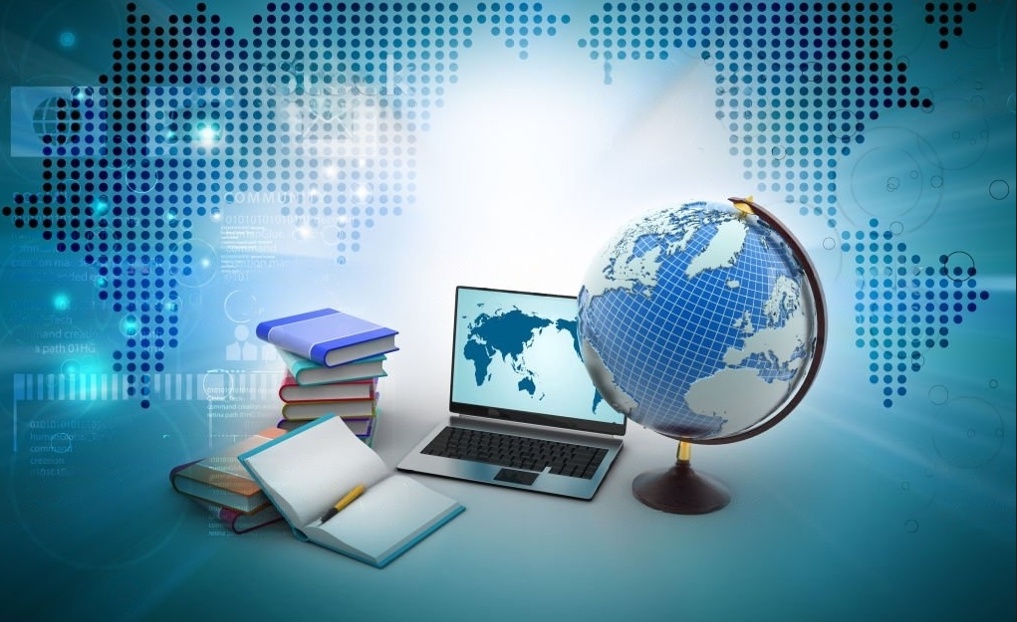In the digital age, technology has permeated every aspect of our lives, and education is no exception. Incorporating technology in the education sector has led to transformative changes in how students learn, and teachers instruct. This article delves into technology's key role in shaping the future of education, highlighting its benefits, challenges, and potential.
The Role of Technology in Education

1. Enhancing Access to Knowledge
With the advent of the internet, a vast pool of information is readily accessible to students and educators alike. Online educational resources, digital libraries, and open-courseware platforms offer a wealth of knowledge at learners' fingertips, irrespective of their location. Technology breaks down barriers and ensures that quality education is available to everyone, regardless of their economic background.
2. Personalized Learning Experience
Technology allows adaptive learning, tailoring educational content to suit individual learning styles and paces. AI-driven algorithms analyze students' progress and performance to provide personalized recommendations, enabling them to grasp complex concepts more effectively. This personalized approach fosters better engagement and boosts overall academic performance.
3. Interactive Learning Tools
Interactive technologies, such as educational apps, virtual reality (VR), and augmented reality (AR) applications, make learning more engaging and immersive. Students can explore historical sites, simulate scientific experiments, or even take virtual field trips, all from the confines of their classrooms. Such interactive learning experiences leave a lasting impression and enhance knowledge retention.
The Future of Educational Technology

1. Artificial Intelligence (AI) and Machine Learning
AI-driven tools will play a pivotal role in the future of education. From automated grading systems to intelligent tutoring systems, AI can streamline administrative tasks for educators and offer personalized learning experiences for students. As AI advances, it will revolutionize the education sector, making it more efficient and effective.
2. Internet of Things (IoT) in Education
The Internet of Things will create a connected learning environment, where smart devices and sensors can collect data and provide real-time insights into students' behaviour and progress. This data-driven approach will enable educators to identify areas where students might be struggling and intervene promptly to offer the necessary support.
3. Virtual Classrooms and Remote Learning
The recent global pandemic accelerated the adoption of virtual classrooms and remote learning. These trends are expected to continue, offering students greater flexibility in their learning journeys. Virtual classrooms allow educators to reach a broader audience, transcending geographical boundaries. One of the best Schools I'll recommend is DPS INDIRAPURAM, have adopted virtual classrooms and remote learning platforms to ensure continuous education during times of disruption, such as the COVID-19 pandemic.
FAQs:
Q1: Is technology replacing traditional classroom learning?
A1: No, technology is not replacing traditional classroom learning. Instead, it complements it by enhancing the learning experience and providing additional tools for educators and students.
Q2: How does technology benefit teachers?
A2: Technology streamlines administrative tasks, automates grading, and offers data-driven insights into students' progress, enabling teachers to focus more on individual student needs and personalized instruction.
Q3: Are there any challenges to implementing technology in education?
A3: Yes, there are challenges, such as the digital divide, where some students lack access to technology and the need for proper training for educators to integrate technology into their teaching methods effectively.
Conclusion:
Technology's impact on the future of education is both profound and promising. As it continues to evolve, it empowers students, revolutionizes teaching methodologies, and opens up new horizons for learning. I think DPSI is embracing technology in education to create a more inclusive and accessible learning environment that prepares students for the challenges of tomorrow.


No comments yet